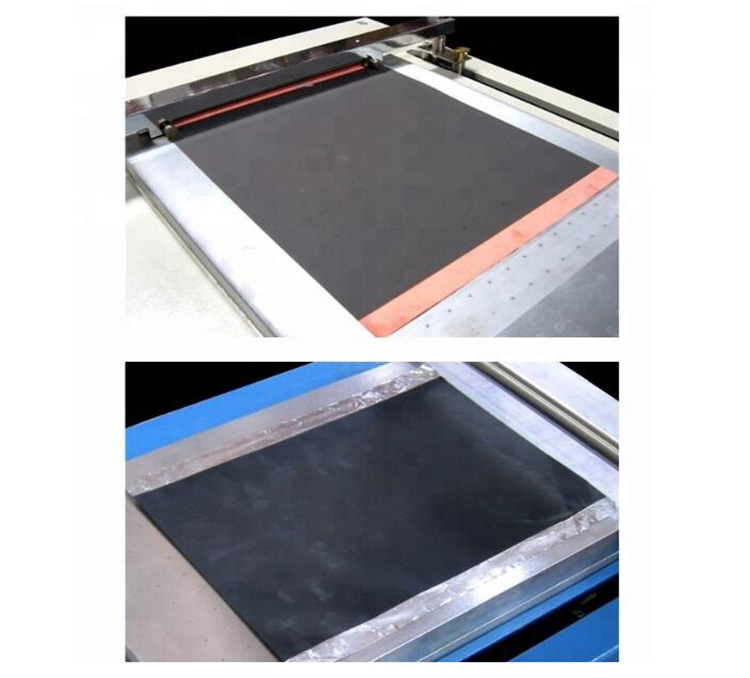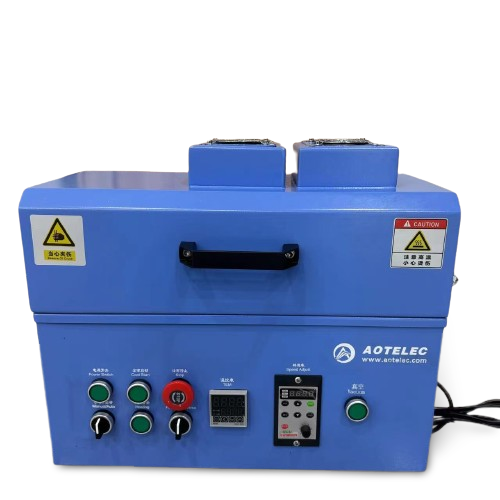-
Call Us
0086-592-7161550 -
Email us
ping@aotbattery.com -
Skype
ping@aotbattery.com
Call Us
0086-592-7161550Email us
ping@aotbattery.comSkype
ping@aotbattery.com2. Overview of battery coating machine
3.Design and Manufacturing of Battery Coating Machine
4.Application and advantages of battery coating machine
5.Development Trends and Future Prospects
1、 Introduction
The battery coating machine plays a crucial role in the battery manufacturing process, and its importance and role are mainly reflected in the following aspects:
(1)Improving battery performance: The battery coating machine can accurately control the thickness and uniformity of the coating material, which is crucial for the performance of the battery. By optimizing the structure of the coating layer, the capacity, cycle life, and safety of the battery can be improved, thereby ensuring the stability and reliability of the battery in practical applications.
(2)Ensuring battery quality: The battery coating machine can maintain high stability and consistency during the coating process, ensuring that each battery unit has the same coating quality and performance. This is particularly important for large-scale production of batteries, as only by maintaining consistency in quality can market demand be met and product competitiveness be ensured.
(3)Improving production efficiency: The battery coating machine adopts automation and intelligent technology, which can achieve high-speed and efficient coating production. Compared to traditional manual coating methods, battery coating machines can significantly improve production efficiency, reduce production costs, and reduce errors and losses caused by human operations.
(4)Promoting the application of new materials: With the continuous development of new materials and technologies, battery coating machines can adapt to the needs of various new coating materials. This enables battery manufacturers to try using new materials to optimize battery performance, further promoting innovation and development of battery technology.
(5)Reducing environmental pollution: In the design and manufacturing process of battery coating machines, emphasis is placed on environmental protection and energy conservation, adopting low energy consumption and low emissions production methods. At the same time, the battery coating machine can also reduce the waste of coating materials and the generation of waste, reducing the impact on the environment.

2、 Overview of battery coating machine
(1)The battery coating machine plays a crucial role in the battery manufacturing process. It is an integral piece of equipment that ensures the quality and performance of the final battery product. By precisely applying coatings to battery electrodes, the coating machine helps enhance the battery's efficiency, durability, and safety.
(2)The importance of the battery coating machine lies in its ability to control the thickness, uniformity, and adhesion of the coating material. This precision coating process is essential for optimizing the battery's electrochemical performance, which directly affects its capacity, power density, and cycling stability.
(3)Furthermore, the battery coating machine contributes to the cost reduction and efficiency enhancement of the overall battery manufacturing process. By automating the coating process, it significantly reduces labor costs and material waste while increasing production throughput. This not only improves the profitability of battery manufacturers but also enables the faster scaling up of battery production to meet the growing demand for sustainable energy storage solutions.
(4)In summary, the battery coating machine is an indispensable tool in the battery manufacturing process, essential for ensuring the quality, performance, and cost-effectiveness of the final battery product.
3、Design and Manufacturing of Battery Coating Machine
The battery coating machine exhibits a sophisticated structure and manufacturing process, essential for ensuring precise and reliable coating of battery electrodes. Here is a brief overview of its overall structure and manufacturing process:
Overall Structure:
(1)Frame and Base: The battery coating machine is built on a sturdy frame and base, providing a solid foundation for the entire system. This ensures stability and precision during the coating process.
(2)Coating Head: The coating head is the heart of the machine, responsible for applying the coating material onto the battery electrodes. It is designed with precision nozzles or rollers to ensure uniform and consistent coating.
(3)Material Supply System: This system includes tanks, pumps, and pipes that supply the coating material to the coating head. It ensures a continuous and controlled flow of material during the coating process.
(4)Drying System: After coating, the electrodes need to be dried to remove excess moisture or solvents. The drying system, typically consisting of heaters and fans, provides the necessary heat and airflow to accelerate the drying process.
(5)Control System: The control system is the brain of the machine, overseeing all aspects of the coating process. It includes PLCs, sensors, and user interfaces that allow operators to monitor and adjust parameters such as coating speed, thickness, and drying temperature.
Manufacturing Process:
(1)Design and Engineering: The manufacturing process begins with the design and engineering of the battery coating machine. This stage involves the development of detailed specifications, drawings, and bill of materials.
(2)Material Selection: High-quality materials are selected for each component of the machine, ensuring durability, precision, and corrosion resistance.
(3)Machining and Fabrication: Components such as frames, coating heads, and drying chambers are machined and fabricated using precision equipment. This includes cutting, drilling, welding, and finishing processes.
(4)Assembly and Integration: Once all components are fabricated, they are assembled and integrated into the final machine. This includes the installation of motors, sensors, and control systems.
(5)Testing and Quality Control: The assembled machine undergoes rigorous testing to ensure it meets all specifications and performance requirements. Quality control checks are performed throughout the manufacturing process to ensure the highest level of precision and reliability.
4、Application and advantages of battery coating machine
The battery coating machine finds extensive applications in the battery manufacturing industry, offering significant advantages over traditional coating methods. Here is a brief overview of its applications and key advantages:
Applications:
(1)Lithium-ion Battery Production: Lithium-ion batteries are widely used in electric vehicles, smartphones, laptops, and other consumer electronics. The battery coating machine precisely applies coatings to the electrodes of these batteries, enhancing their performance and durability.
(2)Solid-state Battery Development: Solid-state batteries are a promising technology for next-generation energy storage systems. The coating machine plays a crucial role in the development of solid-state batteries by depositing coatings on the electrodes, promoting better electrolyte contact and improved performance.
(3)Research and Development: Battery coating machines are also used in research and development laboratories to explore new coating materials, processes, and technologies. They provide researchers with the ability to test and optimize coatings for improved battery performance.
Advantages:
(1)Precision and Uniformity: The battery coating machine offers precise control over the coating process, ensuring a uniform and consistent coating on the electrodes. This uniformity results in improved battery performance and reliability.
(2)High Productivity: The machine's automated coating process significantly increases productivity compared to manual coating methods. It allows for faster coating speeds and higher throughput, enabling manufacturers to meet the growing demand for batteries.
(3)Material Efficiency: The battery coating machine precisely applies the coating material, minimizing waste and reducing material costs. This contributes to the overall cost-effectiveness of the battery manufacturing process.
(4)Versatility: The machine can be adapted to coat various battery types and electrode materials. Its modular design allows for easy customization and integration into different manufacturing lines.
(5)Improved Battery Performance: By precisely controlling the coating process, the battery coating machine helps enhance the battery's performance, including capacity, power density, and cycling stability. This results in better-performing batteries that meet the demands of modern applications.
5、Development Trends and Future Prospects
Current Trends in Battery Coating Machine Development:
(1)Technological Innovation:
Advancements in materials science and automation have propelled the battery coating machine industry towards more precision and efficiency.
New coating techniques, such as laser-guided coating and digital inkjet printing, are being explored to enhance coating uniformity and reduce material waste.
(2)Environmental Compliance:
With increasing global focus on environmental sustainability, battery coating machines are being designed to minimize waste and emissions.
Manufacturers are investing in green technologies to improve the environmental performance of their products.
(3)Integration with Advanced Manufacturing:
The integration of battery coating machines with other advanced manufacturing equipment, such as robots and automated inspection systems, is becoming more common.
This integration enhances the overall efficiency and flexibility of the battery manufacturing process.

Future Prospects for Battery Coating Machine:
(1)Growth in Electric Vehicle Market:
The rapidly expanding electric vehicle market is expected to drive significant growth in the battery coating machine industry.
Manufacturers will continue to invest in research and development to meet the demands of this growing market.
(2)Emergence of Solid-state Batteries:
The development of solid-state batteries is expected to create new opportunities for battery coating machine manufacturers.
These batteries require specialized coating techniques, providing potential for innovation and growth in the industry.
(3)Advancements in Automation and Artificial Intelligence:
The integration of advanced automation and artificial intelligence technologies is likely to transform the battery coating machine industry.
AI-driven coating processes can optimize coating parameters, further improving coating uniformity and battery performance.
(4)Increasing Focus on Environmental Sustainability:
Environmental regulations and consumer preferences will continue to drive the development of environmentally friendly battery coating machines.
Manufacturers will need to invest in green technologies and sustainable production methods to remain competitive.
In summary, the battery coating machine industry is poised for growth and innovation in the coming years. Technological advancements, environmental compliance, and integration with advanced manufacturing techniques are expected to drive the industry forward. The emergence of new battery technologies, such as solid-state batteries, will create new opportunities for manufacturers to explore and capitalize on.

Tel/Whatsapp: 0086-592-7161550

Scan to wechat:
